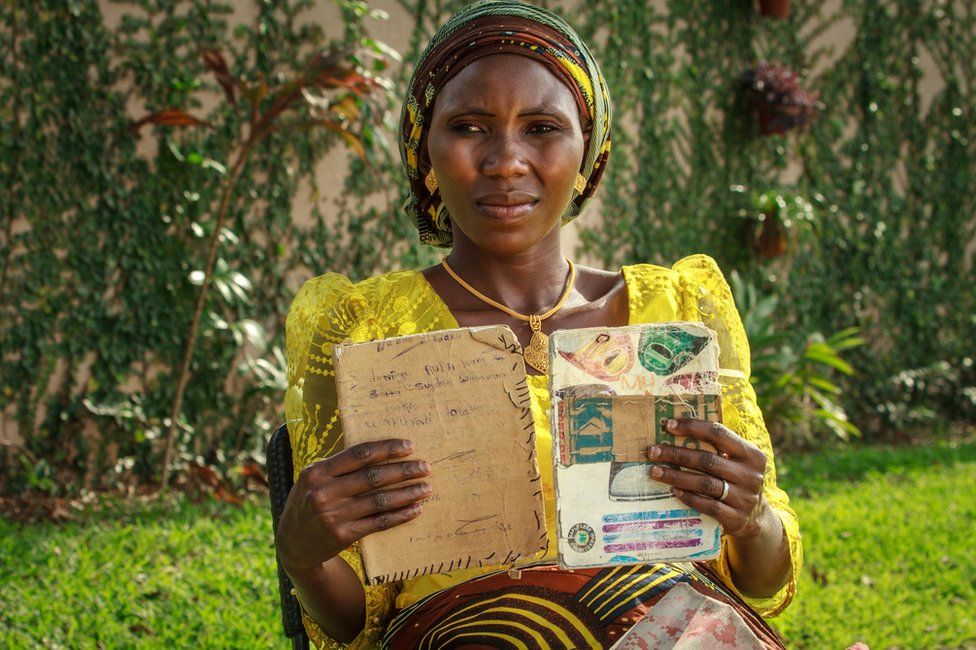Blog Post
The girls who resisted Boko Haram
By Jonathon Van Maren
This column was first published at First Things
On April 14, 2014, Boko Haram kidnapped hundreds of girls from their school in Chibok, Nigeria, taking them deep into the Sambisa Forest. Two weeks later, one militant faced his prisoners as they crouched in the dirt beneath a tamarind tree. He paced in front of them, waving a Quran and a Bible. To say that Jesus is the Son of God, he told them, was blasphemy. For girls to be educated was forbidden—haram. His name was Aliyu Ahmed, and he had once appeared on a YouTube video executing prisoners with an axe. Islam was the true religion, he screamed at them, and the girls were infidels. He offered them a blunt choice: “You can convert to the true Islam, join us, and please God. Or you will be executed.”
This scene is from Bring Back Our Girls: The Untold Story of the Global Search for Nigeria’s Missing Schoolgirls by journalists Drew Hinshaw and Joe Parkinson. It is the definitive account of the kidnapping that triggered a global social media campaign, captured the attention of celebrities and world leaders, and resulted in multinational military operations costing billions of dollars in hitherto unheard-of areas of the Nigerian jungle. The book is the result of six years of reporting on four continents and hundreds of interviews, from presidents to child soldiers. It is also the story of how a handful of girls clung to their Christian faith under unimaginable pressure.
When Boko Haram stormed the school in Chibok, they were not looking for girls—they were looking for a brickmaker to service their far-flung camps, from which the Islamic terrorist group staged shootings, suicide bombings, and kidnappings in major cities. Boko Haram’s usual practice was to kidnap boys to serve as child soldiers, and they had expected the school compound to be deserted. Instead, they found around 270 terrified girls. Impulsively, they herded them into pickup trucks and took them along. The story was only reported locally. It took a tweet to draw the eyes of the world to the violence that had been raging in Nigeria for years.
Music mogul Russell Simons triggered the social media campaign. He sent out a short tweet about the story from his yacht off St. Barts. The chain reaction began, and the story hit the social media stratosphere. Michelle Obama and Hillary Clinton tweeted about it. Rallies were held in Washington, Boston, Kansas, and Connecticut. Signs with #BringBackOurGirls were hoisted on the Hollywood red carpet by Mel Gibson and Harrison Ford. The campaign, ironically, had unintended consequences—the attention turned the girls into Boko Haram’s most valuable asset. Hinshaw and Parkinson describe how the terrorist leaders saw the girls as their claim to fame—and likely lengthened their prisoners’ captivity.
While the world demanded their return, the captive girls were under relentless pressure to convert to Islam and marry militants chosen for them. They were threatened with beheading or brutal slavery if they refused. Many of the girls, paralyzed with fear, succumbed. Others buckled under the brainwashing of a militant assigned to inculcate them into the doctrines of Islam. He forced the “daughters of infidels” to take hours-long classes in which they memorized the Quran. The girls were told that if they married, they would receive homes, slaves, and honor. In secret, the girls shared Bible passages and prayed fervently together for strength and rescue. They sang hymns into their hands and cups of water to stifle the sound. A favorite gospel song sustained them:
It is a must for trials to come
But if we stand firm to the end
We will receive the crown
And be like the angels
The girls wrote lyrics they didn’t want to forget in the notebooks they’d been given for copying the Quran. When the militants discovered they had a Bible, the girls buried it for safety. When the beatings intensified, they took turns fasting for strength. And when the roughly two dozen resolute holdouts were told that their choice was between Islam, marriage, or hellfire (they presumed this meant execution), and that they had two weeks to decide, they fasted and prayed. After a week, they told their captors that they didn’t need any more time. They were told to write their names down—in black for Islam, in red for Christ. One by one, they wrote their names in red.
One of the girls emerged as leader of the little group that stood firm. At twenty-four, Naomi Adamu was the oldest of the girls, and she kept a secret diary during her three-year captivity. Her defiance strengthened the other girls and earned her the nickname “Chief Infidel.” When the Islamic instructor offered her the choice of marriage or slavery and she refused, he screamed at her. She shouted back at him while the other girls listened: “Even if heaven and earth come together, I will not marry!” He told her he would kill her and smashed her in the back of the neck with his Kalashnikov, a blow that would leave her permanently scarred. “God will judge you,” she said as he stormed off. When the militants attempted to starve the girls into submission, many chose fasting in response. How could they be threatened with starvation if they chose it?
The girls did not know it, but while they endured these trials, a massive search was underway. The Nigerian government hunted for the captives desperately; American drones flew over their heads; negotiations started, sputtered, and stalled. Ten of the girls were killed in a Nigerian airstrike intended to take out Boko Haram leader Abubakar Shekau, and the rest—those who did not succumb to the sexual servitude of forced “marriage”—lived in terror. Negotiations finally succeeded in May 2017, when Naomi and eighty-two of the other girls were released into the custody of the Red Cross. Of the 276 that were kidnapped, 164 have been freed, 112 remain officially missing, and at least 40 have died. At the time of writing, Hinshaw and Parkinson write, the Red Cross reports that at least 22,000 northeastern Nigerians are missing.
Many who sent out #BringBackOurGirls tweets forgot about the story within days. Hinshaw and Parkinson’s account details what the girls were enduring throughout their captivity—their courage, their suffering, their faith. Christians especially could learn from this story. As one set of lyrics the girls secretly copied into their notebooks reads: “Nebuchadnezzar is the king of Babylon, big king of Babylon/ We the children of Israel will not bow.”









Incredible courage in the face of unimaginable evil.